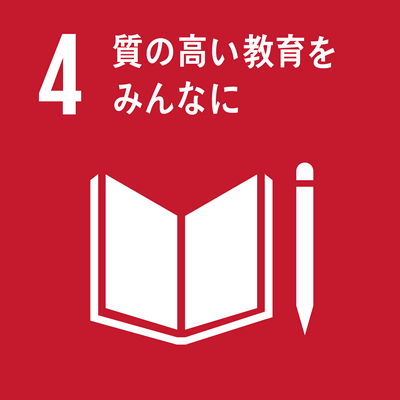シラバス表示
シラバスの詳細な内容を表示します。
→ 閉じる(シラバスの一覧にもどる)
科目の基本情報
| 開講年度 | 2024 年度 | |
|---|---|---|
| 開講区分 | 人文学部文化学科 | |
| 受講対象学生 |
2023年度以前入学生対象 学部(学士課程) : 2年次, 3年次, 4年次 |
|
| 選択・必修 | ||
| 授業科目名 | 特殊講義 コミュニケーション論B | |
| とくしゅこうぎ こみゅにけーしょんろんびー | ||
| Theories of Communication B | ||
| 単位数 | 2 単位 | |
| 受講対象学生 |
2024年度以降入学生対象 学部(学士課程) : 2年次, 3年次, 4年次 |
|
| 選択・必修 | ||
| 授業科目名 | 特殊講義 コミュニケーション論B | |
| とくしゅこうぎ こみゅにけーしょんろんびー | ||
| Theories of Communication B | ||
| 単位数 | 2 単位 | |
| ナンバリングコード | ||
| 開放科目 | 非開放科目 | |
| 開講学期 |
後期 |
|
| 開講時間 |
木曜日 9, 10時限 |
|
| 授業形態 |
* 状況により変更される可能性があるので定期的に確認して下さい
「オンライン授業」・・・オンライン会議ツール等を利用して実施する同時双方向型の授業 |
|
| 開講場所 | ||
| 担当教員 | ヒル リチャード | |
| HILL, Richard | ||
| SDGsの目標 |
|
|
| 連絡事項 | Moodleコースサイトは初回授業時に指示します。初回授業に出席してください。 * 状況により変更される可能性があるので定期的に確認して下さい |
|
学修の目的と方法
| 授業の概要 | Theories of Commuincation is about how to communicate effectively with people who hold radically different beliefs.In a world of increasing social dysfunction, this course will treat having impossible conversations as a skill to be mastered and a habit to be engaged. There will be opinions practiced and hopefully an improved confidence for all students to disagree amicably. This course will further show and provide time to incorporate new skills and techniques into discussions without it feeling unnatural or contrived. |
|---|---|
| 学修の目的 | Students will receive theory and examples of various conversation skills and techniques. They will then practice them throughout the semester, recording conversations and roleplays recognizing when and where to use taught technique. The last class will contain an examination testing the student's theoretical knowledge and understanding |
| 学修の到達目標 | Students will learn how to handle opposing views or arguments, give and recieve opinions, practice numerous conversation skills and techniques in repeated discussions, ask important questions beyond 'Classroom English' and language learning, and receive many examples of constructive dialogue and theory. Hopefully the course will help improve students' speaking and listening beyond language acquisition but in all thier general communication. |
| ディプロマ・ポリシー |
|
| 成績評価方法と基準 | Classwork X 40 points, Homework X 40 (Assessment and Examination) X 20 |
| 授業の方法 | 講義 演習 |
| 授業の特徴 |
プレゼンテーション/ディベートを取り入れた授業 グループ学習の要素を加えた授業 Moodleを活用する授業 その他、能動的要素を加えた授業(ミニッツペーパー、シャトルカードなど) 教員と学生、学生相互のやり取りが、ほぼ英語で進められる授業 |
| 授業アンケート結果を受けての改善点 | |
| 教科書 | There is no textbook but handouts will be provided by the teacher. |
| 参考書 | How to have Impossible Conversations; Peter Boghossian & James Lindsay. |
| オフィスアワー | By appointment Mon-Fri or Tuesday 10:30-11:30. |
| 受講要件 | |
| 予め履修が望ましい科目 | |
| 発展科目 | |
| その他 | This course will cover conversation theory designed to improve arguing effectively, conciliate, and gently persuade, although useful skills in any language it will all be conducted in English. |
授業計画
| MoodleのコースURL |
|---|
| キーワード | Collaborative language, Changing perspectives, Improving conversations. |
|---|---|
| Key Word(s) | Collaborative language, Changing perspectives, Improving conversations. |
| 学修内容 | Week 1: Introduction to the course: Content explanation, Expectations and Grading Week 2: Building golden bridges; making your partners feel comfortable. Week 3: Negotiation, helping your conversation partner with co-operation. Week 4: Using collaborative language. Week 5: Reframing conversations by using different terms and changing perspectives. Week 6: Changing your mind to recognize changing beliefs. Week 7: Introducing scales (1-10) to conversation to encourage new reflection. Week 8: Outsourcing to bring in information to improve conversations. Week 9: Re-expressing your partner’s position (I.E not criticizing). Week 10: How to navigate facts in your conversation. Week 11: Seeking Disconfirmation; how to get to a false position. Week 12: Dealing with Anger/Sarcasm/Dismissive tones and Undermining. Week 13: Altercasting: Putting your partner in a role that helps them think/behave differently. Week 14: Review of all theory. Week 15: How to have impossible conversation (B) Exam. |
| 事前・事後学修の内容 | Students should be prepared to take notes on conversation theory, practice taught theory and conduct themselves in English throughout the entire course. |
| 事前学修の時間:120分/回 事後学修の時間:120分/回 |
